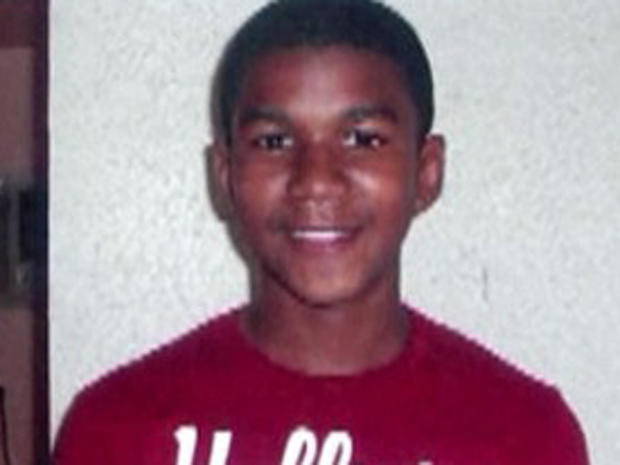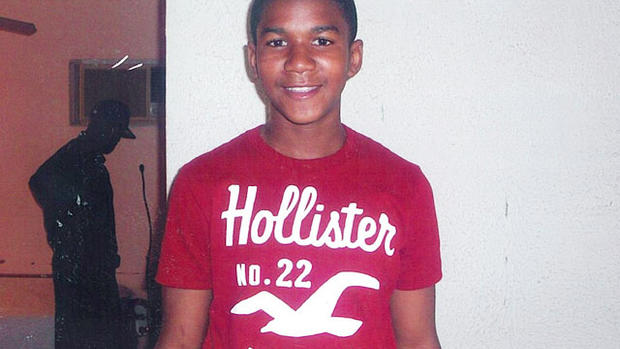The Trayvon Martin case exposes the realities of a new generation of self-defense laws
(CBS) - Around 7 p.m. on February 26, 17-year-old Trayvon Martin walked out of the gated community near Orlando where he was visiting his father to go get some Skittles at a neighborhood convenience store. On his way home, Martin somehow aroused the suspicions of neighborhood watch leader, George Zimmerman, who called 911 to report the boy.
When police arrived, Martin was dead, shot by a bullet from Zimmerman's 9mm semi-automatic handgun.
Zimmerman, 28, who was bleeding from the nose and back of his head when police found him, claimed the two got in a scuffle and that he shot the boy in self-defense. Thus far, no charges have been filed against him.
Martin's family, not surprisingly, is outraged, and calling for Zimmerman's arrest.
"What gave him the right to think he was judge, jury and executioner?" asks Martin's uncle, Ronald Fulton.
The answer to his question may be simple: the state of Florida, which in 2005 enacted one of the nation's strongest so-called "stand your ground" self-defense laws. According to the statute, a person in Florida is justified in using deadly force against another if he or she "reasonably believes it is necessary to do so to prevent death or great bodily harm to himself or herself or another or to prevent the commission of a forcible felony."
Was Trayvon Martin, who was unarmed, posing a threat to Zimmerman's life? We may never know for sure, but in Florida - and a growing number of states - what matters isn't whether or not Martin was actually a threat, only that Zimmerman "reasonably" believed he was.
But what is reasonable? Ekow Yankah, an associate professor of criminal law at Cardozo School of Law in New York, says that to some people, it is reasonable to be suspicious of a young black man walking alone in the dark.
"We have to decide what counts as 'reasonable' to be afraid of, and nobody should pretend that that isn't socially and culturally loaded," says Yankah.
Gregory O'Meara, an associate professor of law at Marquette University School of Law, agrees.
"These 'stand your ground' laws license pistol-packing urban cowboys and paranoid people," says O'Meara, who fought the passage of a similar law in Wisconsin. "We've all been trained to be afraid of black men, and if you're afraid enough that justifies everything."
But Allen County, Indiana prosecutor Karen Richards, who has prosecuted cases involving claims of self-defense, says that the new laws simply "solidify what juries were feeling anyway. If you're in a place where you have a right to be and you have a reasonable belief you need to use deadly force, juries don't think you need to retreat."
Of course, that's assuming the case gets to a jury. So far, Zimmerman hasn't even been charged with a crime. Sanford Police Chief Bill Lee did not return Crimesider's call for comment on the case, but at a press conference on Monday he said he did not have enough evidence to arrest Zimmerman.
"In this case Mr. Zimmerman has made the statement of self-defense," Lee said. "Until we can establish probable cause to dispute that, we don't have the grounds to arrest him."
According to the National Rifle Association - which has lobbied for and in some cases assisted in writing laws expanding self-defense statutes - since 2006, at least 29 states have passed amended self-defense laws that the gun rights advocacy group supports, including four last year. Although each state's statute is slightly different, generally, this new crop of laws allows citizens to use deadly force on someone they reasonably believe is a threat to their life. Instead of having a so-called "duty to retreat" from perceived danger, a citizen can "stand their ground" and meet force with force. Some laws also create immunity from civil lawsuits for those found to have reasonably used deadly force.
"We want to make sure if a crime victim acts to save his life they can't be penalized or prosecuted for doing so," says NRA spokesperson Andrew Arulanandam.
Currently, legislatures in Iowa, Nebraska and Alaska are considering bills that would similarly expand where, when and how a citizen can kill someone they perceive as trying to harm them. Bucking the trend, on March 5 Minnesota's governor vetoed a bill that would have expanded the places in which a citizen could use deadly force.
In Oklahoma, which passed a "stand your ground" law in 2006, the new language made it easy for law enforcement to clear 19-year-old Sarah McKinley, who shot and killed a man trying to break into her Oklahoma home on New Year's Eve. McKinley was immediately hailed as a hero. The situation was less clear cut when pharmacist Jerome Ersland shot one of the young men who tried to rob the Oklahoma City drugstore where he worked in 2009. Ersland shot 16-year-old Antwun Parker in the head, chased his accomplice out, then returned and shot Parker five more times as the teen lay on the floor. Ersland pleaded self-defense, but was convicted of first-degree murder and sentenced to life in prison. He is appealing the conviction.
Thus far, there is no indication that Trayvon Martin was in the commission of any sort of crime when he was approached by Zimmerman, who was reportedly driving an SUV. Still, judging by the fact that he has not been arrested and the case has been referred to the state's attorney, law enforcement seems to be struggling to determine whether Zimmerman's actions fall within the scope of the Florida law.
"The law has made things confusing for law enforcement," says Zachary Weaver, a Florida defense attorney who in 2008 wrote an article on the state's "stand your ground" law for the University of Miami Law Review.
In fact, in several of the states considering "stand your ground" laws, law enforcement has spoken out against expanding the ways and means for a citizen to use deadly force against another.
Dennis Flaherty, the executive director of the Minnesota Peace and Police Officers Association, told Crimesider he believes such a law "will increase the situations where deadly force is used unnecessarily." Flaherty, who has been in law enforcement for nearly two decades, says he can't think of a single case where a Minnesotan has been prosecuted for killing someone in self defense.
"It's a solution to a non-existent problem," he says.
Complete coverage of the Trayvon Martin case on Crimesider


